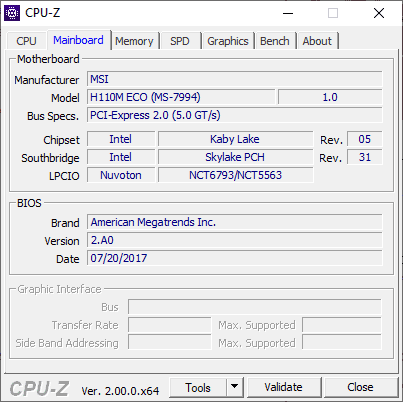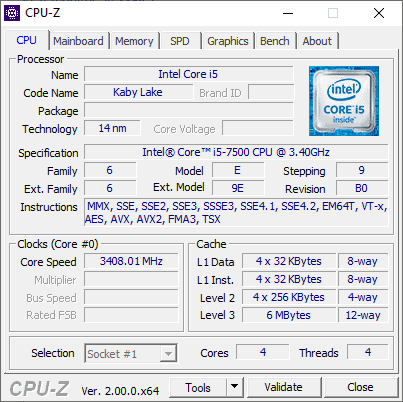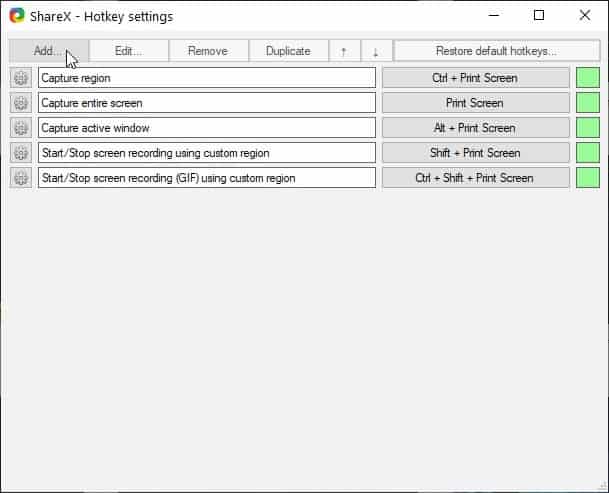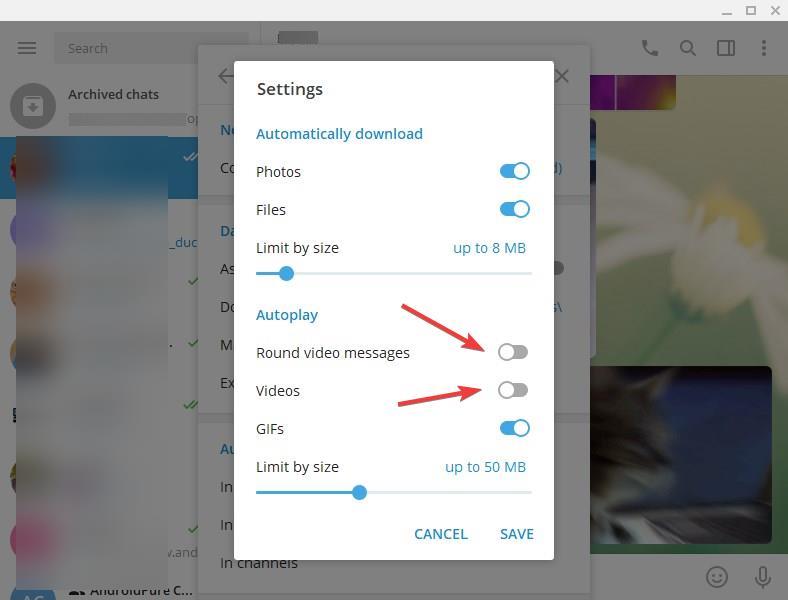Hardware reporting tool CPU-Z 2.00 is out

CPU-Z 2.00 is the latest version of the free portable hardware reporting tool for Windows. The program displays detailed information about a Windows PC's processor, graphics, motherboard and memory. You can use it for a number of purposes, including finding out which RAM a computer supports.
The application displays detailed information about the installed processor, including its name and family, speed, caches and other characteristics. The same is true for the motherboard: you get the name, model and manufacturer, BIOS and more. Memory lists the type of memory, size, frequencies and more. All of this is useful for several things, including:
- finding out if your motherboard supports a specific processor.
- finding out if you can install more RAM and which.
- finding out if the installed processor supports certain features.
- running CPU benchmarks.
The new version of CPU-Z is a milestone release, but it is not one that makes big changes to the application or its interface. Users of the application may find this refreshing, as they may continue using the program as before without having to deal with changes.
CPU-Z 2.00 is available for download on the developer website. You may download a portable version in English or Chinese, or an installer if you prefer that. There are also customized versions for certain devices listed on the main page. The portable version can be run after you have extracted the downloaded archive on the system.
The interface has not changed, but support for new hardware such as Intel Core i9 12900KS, AMD Ryzen 7 5800X3D.v or AMD Radeon RX 6500 XT has been added. The new version has preliminary support fro AMD Ryzen 6000 APUs as well. Here is the full list of changes in the release:
- Intel Core i9 12900KS.
- Intel Core i7-1280P/1270P/1260P, Core i5-1250P/1240P, Core i3-1220P (28W).
- Intel Core i7-1265U/1255U, Core i5 1245U/1235U, Core i3 1215U (15W).
- Intel Core i7-1260U/1250U, Core i5 1240U/1230U, Core i3 1210U (9W).
- Intel Pentium 8505, Celeron 7305 (15W).
- Intel Pentium 8500, Celeron 7300 (9W).
- AMD Ryzen 7 5800X3D.v
- AMD Radeon RX 6500 XT.
- Preliminary support of AMD Ryzen 6000 "Rembrandt" APUs.
Closing Words
CPU-Z is one of those useful programs for Windows that are small in size but huge when it comes to the functionality that they provide. Some users may criticize the program's interface for being old fashioned, but many of its users like the simplicity of it.
It is a great application that is updated regularly to support new hardware that is released.
Now You: which system information tools do you use?




























Hwinfo is my primary; I’ve used CPU-Z, tried this version, seems to work fine.
I use a freeware called HWiNFO, though it does more than CPU-Z you may find it useful-
https://www.hwinfo.com
it’s kind of hard to get excited for windows-only software at this point when the os itself has been going down the drain for… over ten years now(?) and in a few years nearly everything will be exclusive to windows 10+. at some point they’re just going to kill off win32 and that’ll be that :/
What I really like are the custom versions that are available.
Gigabyte AORUS 32 and 64-bit versions, Gigabyte 32 and 64-bit versions, etc.
Hopefully, those custom versions will be soon be upgraded from 1.99 to 2.00.
Problem is the customized versions usually skip every other release… frustrating.
Normally Belarc Advisor provides all the information I require, but CPU-Z Version 2.00 gives me 3241 text lines of information for my home laptop. Amazing. ?????
When I built my first computer back in 2006, CPU-Z was one of the best tools I discovered. It pretty much looks the same as it did back then, and I hope that never changes. That and the other “Z-series” of info tools like GPU-Z, PCI-Z, and SSD-Z.